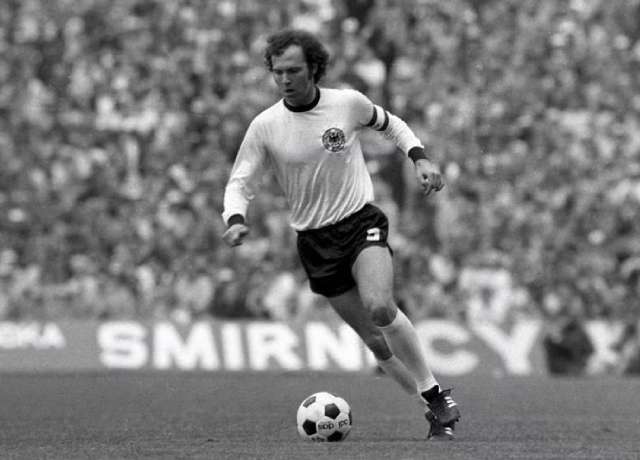This article will tell you about the career highlights of German legends Franz Beckenbauer
Franz Beckenbauer, fondly known as “Der Kaiser,” is a legendary figure in the world of football. Hailing from Germany, Beckenbauer’s illustrious career as a player, manager, and administrator has left an indelible mark on the sport.
As a player, he revolutionized the role of the sweeper, combining defensive solidity with exceptional vision and playmaking abilities.
Beckenbauer’s success with Bayern Munich and the German national team, including winning the World Cup as both a player and manager, solidified his status as one of the game’s greatest icons.
Let’s explore the remarkable journey of Franz Beckenbauer, a true footballing legend.
Early Career
Franz Beckenbauer was born on September 11, 1945, in Munich, Germany. He began his footballing journey at the youth academy of Bayern Munich.
Also Read: Bayern Munich’s Champions League History
Known for his elegance, intelligence, and versatility, Beckenbauer quickly rose through the ranks, making his debut for the senior team at the age of 18.
Career at Bayern Munich
Beckenbauer’s impact at Bayern Munich was immense. Playing primarily as a central defender, he captained the team to unprecedented success.
He won four Bundesliga titles, four DFB-Pokal cups, and three consecutive European Cups (later known as the UEFA Champions League) from 1973 to 1976.
Beckenbauer’s ability to read the game, initiate attacks, and his composure under pressure made him a true leader on the pitch.
International Career
Beckenbauer’s contributions to the German national team were equally remarkable. He played a vital role in Germany’s World Cup triumphs in 1974 as a player and in 1990 as a manager.
Beckenbauer’s vision, leadership, and technical skills made him the epitome of the modern defender and a symbol of German football excellence.
Further Success
One of Beckenbauer’s enduring legacies is his innovative adoption of the sweeper role. As a libero, he revolutionized the position, combining defensive solidity with the ability to initiate attacks from the back. His style of play influenced future generations of defenders and left a lasting impact on the tactical landscape of the game.
In 1977, Beckenbauer embarked on a new chapter in his career by joining the New York Cosmos in the North American Soccer League (NASL). His arrival significantly raised the profile of football in the United States and helped popularize the sport in the country.
Coaching and Management
Following his playing career, Beckenbauer transitioned into coaching and management. He had successful stints as a manager, most notably leading Marseille to the 1991 French league title.
Later, he held various administrative positions, including serving as the president of Bayern Munich and playing a pivotal role in Germany’s successful bid to host the 2006 FIFA World Cup.
Legacy
Franz Beckenbauer’s impact extends beyond his achievements on the field. He personified elegance and class, both as a player and as a representative of the sport.
Beckenbauer’s influence on football tactics, his leadership qualities, and his dedication to the game have made him an iconic figure in the sport’s history.
Controversies
Despite his remarkable career, Beckenbauer faced off-field controversies related to his involvement in the FIFA corruption scandal.
He was investigated for his role in the bidding process for the 2018 and 2022 World Cups, leading to a suspension from football-related activities. These controversies marred his reputation in his later years.
Conclusion
Franz Beckenbauer’s career exemplifies excellence and innovation. From his accomplishments as a player, his pioneering role as a sweeper, to his success in coaching and management, Beckenbauer’s contributions to football are immeasurable.
Though his legacy has been clouded by off-field controversies, his impact on the game remains undeniable, making him one of the true legends of world football.












